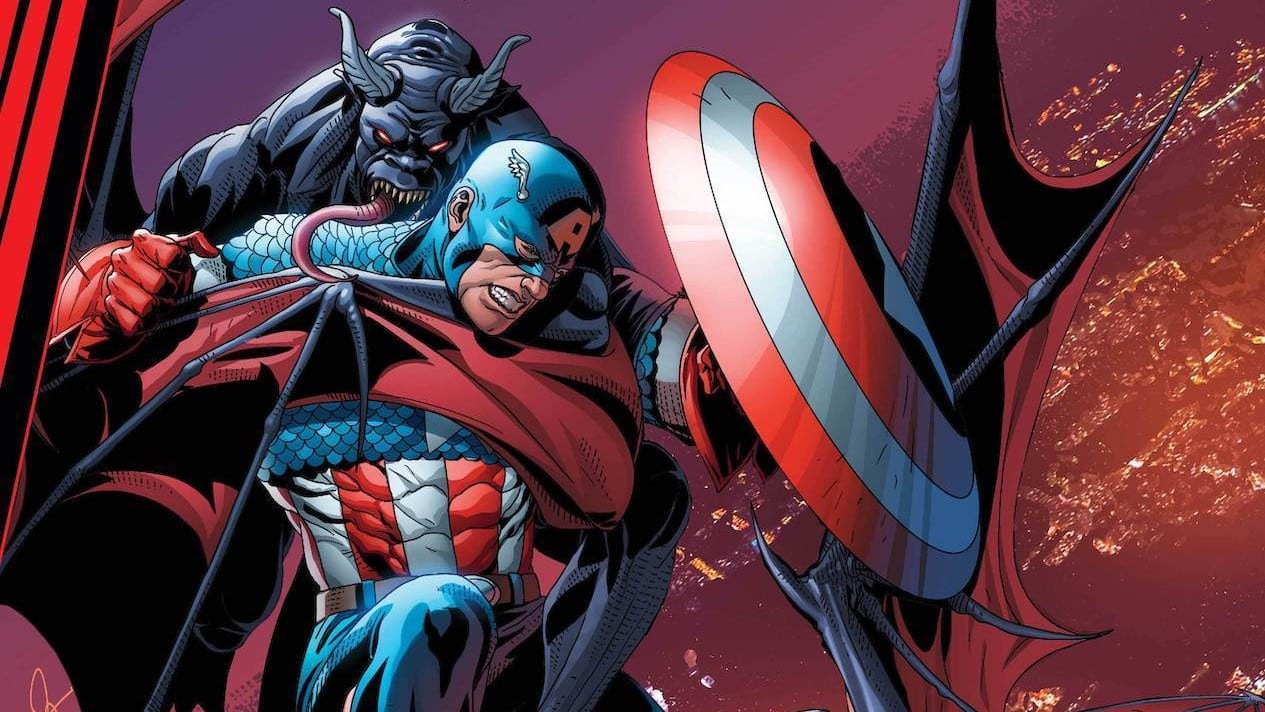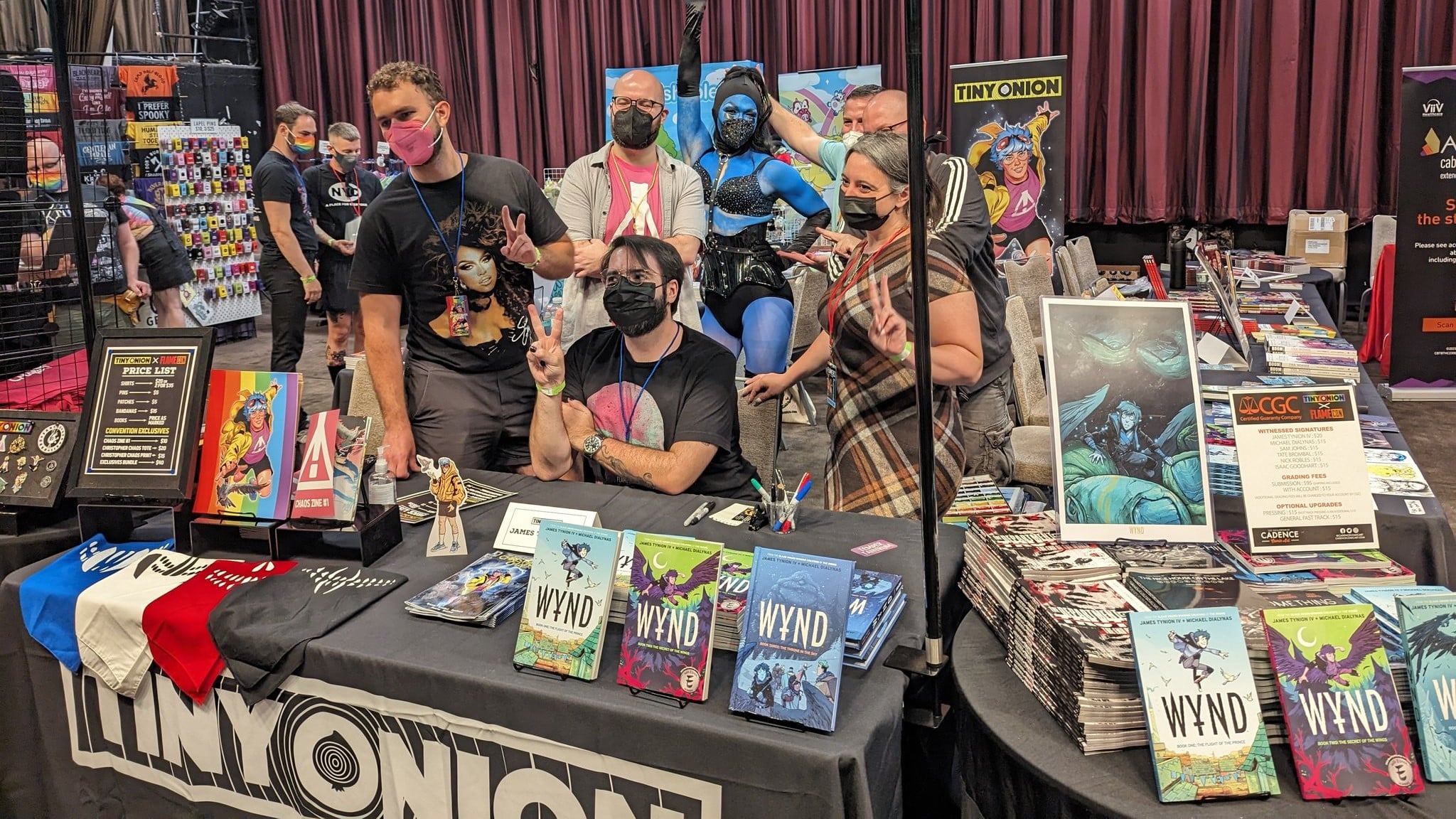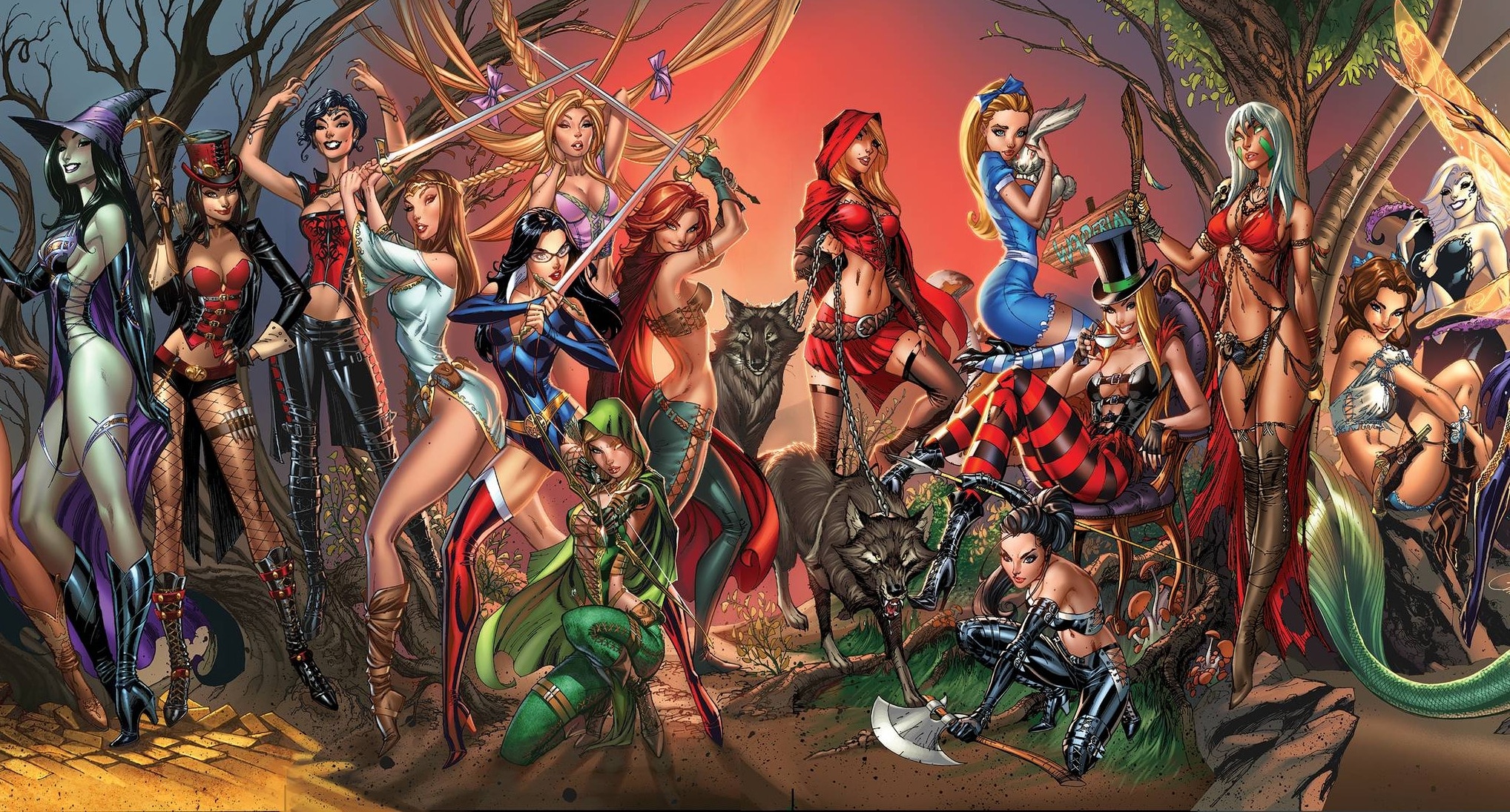Danny Lore is one of the hottest up-and-coming creators in the market today. They sat down with us to talk about all their upcoming work. And also building robots.
Zachary Jenkins: Much of your recent work, it’s been co-written with Vita Ayala, and you’re moving away from that so far with something’s been announced with King In Black: Captain America, Champions, things like that. What adjustments are you making when you’re writing solo versus co-writing?
Danny Lore: There’s a certain net that you have with a co-writer, I think, especially when you’ve worked with someone, like I have with Vita, for so long. We have an instinctual puzzle-piece-fit together. I don’t think there’s ever been a part where one of us has gone, “Man, I’m really struggling with that scene” and the other didn’t go “Oh, that’s why my favorite scene and that stuff you’re gonna write, let me do it.”
The real adjustment is you gotta do it, you gotta get it done on your own. I did Queen of Bad Dreams for Vault a while back, and I learned a lot with that process, both things I really enjoyed doing and things on a technical level that I’m like, “I will never do that to myself again.” And even before I was writing, I talked a bit about how I worked in the same shop [Forbidden Planet] as like Matt Rosenberg [Uncanny X-Men, The Punisher] and Tyler Boss [4 Kids Walk Into A Bank, Dead Dog’s Bite] and Vita. I got to listen to a lot of business and craft stuff while we were inputting inventory. Not secret stuff, but them learning how to pitch them, talking about the sort of technical critique that they would have from editors constantly. So I was blessed with a long-term class about the business, in a way that I know that a lot of writers didn’t get to have before they sent in.

So there is less of a writing adjustment. There’s a reality adjustment that kind of happens where I’m like, “You wanted me to do this, just me?” and that shock that that’s kind of where I am career-wise. I love working with Vita, we better do more work in the future together or I’ll fight Vita in, I guess, in a gladiatorial combat or something. But it’s really cool that we’re both doing things in different parts of different universes.
ZJ: Another part of your background is as an editor, you edited The Wilds among some other stuff, what has that background added to your ability to tell stories in sequential art?
DL: There’s a big difference between being hired as a freelance editor and working for a company that I think a lot of people don’t know off the bat. As a freelance editor, it’s not like if you’re working in the X-Men office, where you’re putting together teams for books that are either already in existence or you guys wanna make it exists; you’re consulting to make it kind of the best for the line. Whereas as a freelance editor, you’re sitting there and having to pinpoint what is the story that this writer wants to tell specifically, and how can I help them tell it the best as possible. As a freelance editor you’re never sitting there going, “Cool, your pitch, I don’t think that we’re gonna accept it right now”. You either take the job or you don’t.
That has a big effect on me as a writer. As an editor, I think you do a lot of work on identifying and translating, writing shorthand, both the symbols and a dialogue and the implications that you can do. Especially in comics, to turn what could be 20 minutes of a movie into two pages of script. Understanding tropes and things with an editorial eye is different than understanding them with the writing eye. Being able to go back in there and tweak with that eye helps. On the flip side, I am terrible at editing myself because I can’t stop editing once I start. I am a massive over-editor. It is way worse in prose that it is a comics, but if given the opportunity, I would rather hand something to my wife and ask her to give me notes, then edit my own work, because otherwise I will over-tweak it out of existence..
ZJ: Well, speaking of some of your own work, you have some real exciting stuff coming up this week. King In Black: Captain America #1, it’s an event tie-in, jumping in for a one shot with a character that you’ve not written in the past. How do you go about carving out your own space for this character in this story in the midst of this big, giant, cosmic, every-comics-involved kind of thing?
DL: Well, you start with a fan boy cried, which is legit what I did. I saw the email asking if I was interested in writing this, got half a sentence in and burst into total fan boy tears at my computer. The first piece of original art I ever bought was, which is Bucky being tortured by Faust. And then I went, “Okay, yeah, no, no, I gotta figure this out.”
I was really fortunate in the timing of when this issue happens. I got to tell a far story with the Cap team, which is immensely cool. I’m both a giant fan of Cap, of Steve, Sam and Bucky, all three, but also of horror in general. I get to talk just as much about the event as the effect of the event on Steve. I think that as Captain America and as Steve Rogers, he’s such an icon and a lot of my favorite stories, I was talking about “Theater Of War” for by Paul Jenkins the other day, have stories like that. Even with “Winter Soldier”, to a certain extent, is more about the effect that Steve has on other people.
I really liked what was happening with Knull and the ways that the superheroes were possessed and manipulated, being able to tell a story about how everything was affecting Steve. Once I started talking about the way that that could kind of work as a metaphor for a very exhausting year and a half. How do we keep moving forward when it feels like any time we open our mouth, sometimes we just make everything worse around us? Me and my editor Alanna Smith were really hooked onto that idea. It was just fun and came naturally.
ZJ: You’ve got another book coming out this week, you contributed to the Marvel Voices: Legacy anthology, which is an anthology chock full of Black creators doing stories about Black Marvel characters celebrating Black History Month in February. You chose to do a short on Blade. Blade has been so many things over so much time. What about Blade appeals to you?

DL: For me, Blade has only been one thing, and that’s cool. Blade been so many different things because the definition of what “Black cool” is evolves, but in the end, that’s what he is. He is that walking, talking, Black cool. I saw the Blade movie in theater as a kid with my dad before I knew that it was a Marvel character. I just knew that it was a cool-ass character and didn’t really understand that he had comics. It was such a natural choice, like when they were like, “Hey, is there anybody you wanna do?” I was like, “Did anyone take Blade?” I had to shoot that shot.
I take every opportunity in, especially superhero comics, like this is your one-shot, because you don’t know. There are so many talented writers and the field is always changing and companies are always changing. You can’t assume even if you make it big in the industry that you will be able to write whoever you want, it’s not logical.
Whenever given the chance to go, “who would you most wanna work with?” I always treat it like this is gonna be the only time I get to write that character, because it might be. It’s not because of my talent or anything that has to do with the company; the stars might not align again. I would have looked back and thought “you could have said Blade” if I didn’t try.
They asked what do you wanna do? My dad was from Hunt’s Point in the Bronx, and it is my eternal mission to bring more and more of the outer boroughs to every comic humanly possible, both creator owned and super hero. I did a tribute to my dad’s neighborhood and the people who live there.
ZJ: Another book that you have coming up that also has a long history of dealing with social issues is Champions, which you are taking over on issue #6, following up Eve Ewing’s great run. That’s a book that has been in an interesting position in the last few years, since it’s been revamped this new young heroes line. What are you hoping to say with your time on this title?

DL: I think that in a lot of ways, virtually all cape books are about wish fulfillment. It’s a question of what wish you’re fulfilling. Even if you’re looking at a horror book, it would be the ability to express a certain emotion that you normally can’t. It’s the wish of being able to immerse yourself in the things that usually scare you. There are no books that that is more true about than a teen book, especially right now. We live in this world where we have Gretta Thurnberg other young activists who speak out constantly and are simultaneously making a huge change in our world, but also being told that they’re silly, that what they’re doing isn’t moving the needle at all.
Wanting to write Champions, especially after the amazing work that has been done with “Outlawed” and all the solo books that Miles and Kamala and Ironheart and all of these characters have had, is that it continues to be that book that represents these young characters. These young people having voices, and a world in which, whether they succeed or fail, their voices make a difference.
Sometimes it works out, sometimes it doesn’t. I hope that in my writing, there will never be a point where it truly feels as if anything that these kids say hits a brick wall. I think that that’s the best way that I can continue what was done in the previous run. A lot of Eve’s work was influenced by her social work and her activism, and I love her work and I couldn’t try to emulate that because I don’t have that background, but I know very much what it feels like to keep screaming and feeling like you’re not heard. I remember picking up her Ironheart, and that first arc about the teen girls going missing and feeling heard with that in a way that I think a lot of times I hadn’t felt heard. I hope that even in its goofiness, because I am doing some goofy stuff, acknowledging the wild control social media has over our lives, which inevitably leads to some wonkiness and some very Champions humor, but I hope that people feel heard and feel seen by it.
ZJ: We’re gonna close out with one last one, you’re a big Gundam fan. What has been your favorite build of 2021 so far?
DL: So I had a lot of build fails at the start of this year that were just awful. Sometimes when you fail and break a piece in one Gundam it means for next three, you will inevitably break a piece because you’re just getting increasingly frustrated, and I was trying some Real Grades that just weren’t working out. Then the new Gundam Wing line, the Master Grades, just came out, so I just finished, all I have to do is panel line it, the Tallgeese. I did a full paint and everything, and it was just a beautiful build to put together.
The only little quirks I had were really because I insisted on painting the pieces before putting it together, so it was just sometimes I had to shave off some of the things like the pieces, but I never had any problems with it due to the way the build-was created, and that’s a very rare Gundam for that to happen with. And I just started tonight actually painting the pieces for the Altron Gundam. So I’m really excited for that. They haven’t made that one in years, so I suspect by the time that’s done, that’ll probably be one of my favorite builds of the year.
Zachary Jenkins co-hosts the podcast Battle of the Atom and is the former editor-in-chief of ComicsXF. Shocking everyone, he has a full and vibrant life outside all this.






